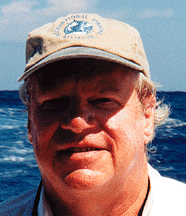Mission Statement
We provide the freshest and healthiest seafood obtained only from sustainably managed fisheries, and we advocate for chefs and consumers to reduce the demand for overfished species and seafood posing a health risk.
Our Pledge
-
We will supply our customers with top quality fish and shellfish generally delivered within 24 hours of being removed from the water.
-
We will obtain seafood taken only from healthy, sustainably managed populations.
-
We will seek out and economically support small-scale fishing communities which have adopted sustainable fishing practices by buying their seafood products at prices that reflects their added commitment and encourages its continuation.
-
We will not trade in species being driven to extinction by overfishing such as "Chilean seabass," orange roughy, marlin (all), mako sharks, beluga caviar or bluefin tuna.
-
We will not buy or sell seafood which is known to contain unsafe levels of contaminants, such as most "farm-raised" salmon and imported shrimp.
-
We will not supply seafood that is obtained in ways that damage the marine environment or destroy habitat upon which a large number of other species depend for survival, such as farm-raised shrimp from Asia, Central and South America.
-
We will support responsibly managed aquaculture operations such as oyster culture in cages (those which do not degrade the marine environment with pollutants, spread parasites and disease, produce habitat loss, or use large quantities of wild fish as feed) because they reduce the pressure on wild stocks.
-
We will advocate locally and nationally for both chefs and seafood consumers to become part of the solution by increasing their purchases from sustainably managed fisheries (which also provide the greatest health benefits) and reducing their use of seafood containing dangerous contaminants.
-
We will share with chefs our detailed knowledge gained in over 35 years of fishery conservation and management experience and use it to help them make wise choices on what seafood to use and what to avoid.
-
Our staff will conduct themselves with class and professionalism to ensure the highest level of customer service.
The Worldwide Problem
Persistent overfishing by commercial interests, allowed by ours and many other governments, has been decimating populations of the world’s most valuable marine species including the "lions and tigers of the sea." An estimated 90 percent of the abundance or “biomass” of the world's largest and most valuable marine fish (bluefin tuna, marlin, Atlantic cod, Atlantic halibut, etc) has been eliminated since 1952 when industrialized commercial fishing began in earnest. A recent scientific study published in Science, the journal of the American Association for the Advancement of Science (AAAS), predicts the collapse of all the world’s ocean fisheries by 2048 unless worldwide overfishing is halted and reversed and coastal habitats (e.g., coral reefs, wetlands and estuaries) are protected from continuing degradation and loss. Already, 29 percent of all ocean fisheries have collapsed and the trend is accelerating.
Sustainable Fisheries
To us, “sustainable” fishery management means the fishing or “fishing pressure” on a population is being limited to the point that the population is robust and the removal of fish or shellfish from that population is less than that being added through reproduction and growth. It is measured technically by never allowing the population’s abundance to decline below the maximum sustainable yield level, which is about 50 percent of the abundance of a “virgin” or unfished population. Any decline in abundance below this level constitutes an “overfished” condition of the stock. And any fishing pressure which will produce an overfished condition is termed “overfishing.”
As a result of the Sustainable Fisheries Act (SFA) of 1996, the Secretary of Commerce (who is charged with the federal responsibility to properly manage U.S. marine fishery resources and their habitats) must annually furnish to the Congress a listing of overfished stocks but then also act to rebuild each within 10 years. In 2010, the U.S. finally began acting to eliminate overfishing (through management plans developed by the eight Fishery Management Councils) which had been postponed throughout the lower 48 states for years at the insistence of commercial fishing interests and their Congressional representatives. Most U.S. fishery populations are now (2011) just starting to recover from an overfished state, but thanks to the SFA they ARE starting to do so.
Alaska's fisheries have been both the exception and the worldwide model for sustainable fisheries management. None of its fisheries are overfished, none are undergoing overfishing and thus all (except perhaps the Alaskan pollock fishery) are managed in a sustainable manner.
Why Buy From Us? - 10 Good
Reasons
Health Benefits of our
Products
What Seafood Should
Not be Served?
"Farm-Raised" Salmon =
"Farmed
and Dangerous" Sailfish Jim
Prime Seafood's owner is a fisheries biologist with over 35 years of experience including 30 years as a federal government official involved in marine fisheries conservation and management, nationwide and internationally. If you are a serious fisherman, check out his website devoted to Big Marine Fish. |
Give Jim, Joe or Dan a call to discuss regular deliveries for your fine restaurant.

Jim Chambers, Owner
Joe Boncore, Director of Operations (240-483-8475)
Dan Beck, Manager of East Coast Operations (252-202-5683)
Prime Seafood, LLC, 9814 Kensington Parkway, Kensington, MD 20895
(Office) 301-949-7778 (Fax) 301-949-3003 (Mobile) 202-330-9121
Updated 3/28/11